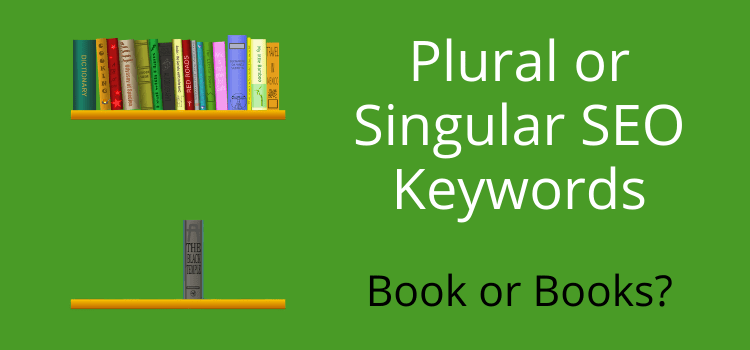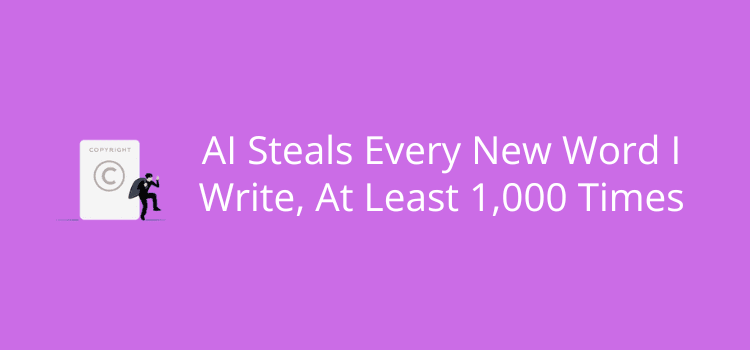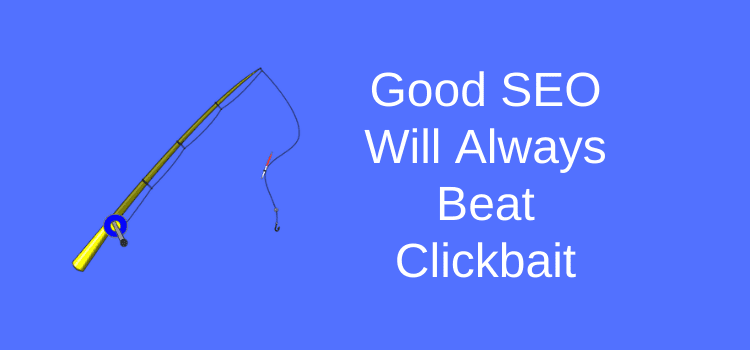
We all want to get more traffic to our blogs and sites, but using misleading SEO clickbait titles never helps.
It doesn’t matter if you have a hosted blog using Wordpress hosting or if you are using free blogging platforms.
When you start a blog and write blog posts, you want to appear on a Google search results page to get traffic.
When you do, compelling headlines and post titles encourage people to click through to your blog.
What are SEO clickbait titles?
In today’s world of fake news, it is easy to think that a sensational headline will help attract attention.
It can, but only if you create a curiosity gap.
Every media outlet, from the New York Times to your local newspaper and most online news feed sites, uses this technique.
A good clickbait headline makes readers curious and eager to read an article.
A compelling headline is worth its weight in gold.
As long as the title is representative of the content of the article, it can work successfully.
Successful clickbait titles often use the following structures.
Numbers work, as does the word this in a title, because it creates curiosity. One of the other common features of a good title is using the word you.
10 Reasons why you … 12 Things you don’t know about … This is what you need to … This is how you … This is why you should … You can … You won’t believe …
But misleading SEO clickbait titles or clickbait articles suffer from an information gap because the headline is unrelated to the content.
Misleading SEO clickbait titles
If you use a headline like, madman attacks an innocent dog, and your content is promoting your new science fiction book, a reader will feel cheated and leave.
Sure, you gain a click. But when a visitor leaves a web page after only a few seconds, it will not help your site’s page views or ranking for organic search results.
High bounce rates are not good for your SEO.
You might get some attention on a social network like Facebook or Twitter. But a social like does nothing to help your search engine results.
Trying to trick people into visiting your blog with a startling or lurid headline that is not connected to your content is a strategy that leads nowhere.
If you want to succeed at blogging, it is far better to learn how search engines work.
Then you can write your articles and blog posts to take advantage of them and get more organic blog visitors.
How to use search engine optimization (SEO)
Search engines such as Google and Bing are getting smarter and smarter.
When they crawl your post, they analyze a long list of ranking factors. According to Backlinko, there are 200 ranking factors that Google uses to rank a web page for search queries.
You have no control over some, such as site age.
But you have total control over content factors such as keyword use and relevant content and making sure you do not post copied or duplicate content.
The most critical issues are your post title, SEO title meta tag, meta description, the length and quality of your content, and user experience.
If you use WordPress, there are many SEO customization plugins you can use with your blog editor.
Basic SEO tools
Yoast and All in One SEO are the most popular plugins. Here is a screengrab of my Yoast SEO summary for this article.
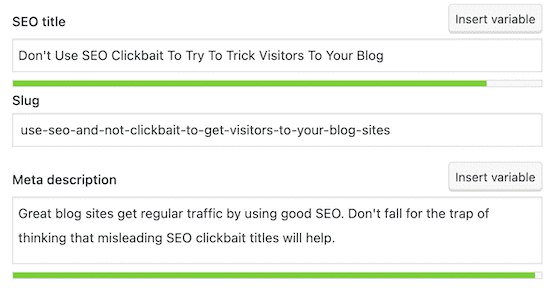
Because WordPress is an open-source content management system, you can optimize all your articles for web search and even link directly to Google Analytics to monitor your progress.
For bloggers using a free platform or website builder on a free domain, you should have basic SEO features, including an SEO title and meta description.
But if not, concentrate on your post title and content.
It doesn’t matter if you are blogging to promote your books, a local business, or a marketing service.
The key to success is in writing quality content and choosing appropriate keywords for every one of your posts.
What is the difference between keywords and SEO clickbait?
A search keyword is a word or short phrase that real people use every day to find information on the Internet. It is not guesswork.
Finding these phrases requires research and taking the time to find the best ones to use in the title of an article.
In this article, I am writing about the downsides of SEO clickbait and how good SEO helps blog sites gain regular organic traffic.
Here is my research data on the three keywords I selected.
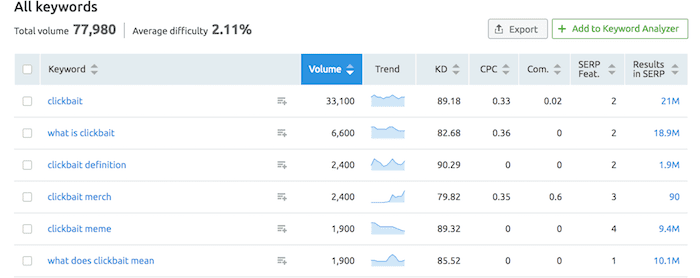

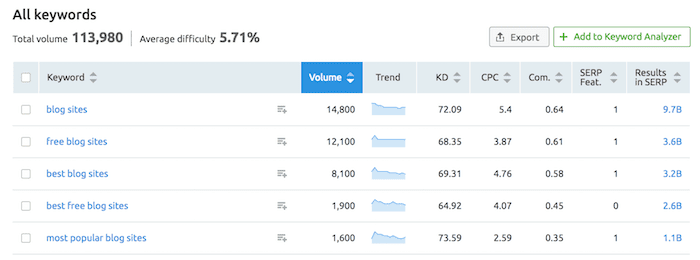
All three have modest monthly search volumes but are precisely relevant to my article.
If I manage to rank on Google and Bing and get a 2-3% click-through rate, I will be more than well satisfied.
However, if I were to be greedy and think about using SEO clickbait titles, I would take a different approach.

Don’t try to trick people
For an inexperienced blogger, this is something that would undoubtedly look very tempting.
Two and a half million sounds like a much better bet than only ten or twenty thousand.
All you would need to do is include Taylor Swift in the blog post title. Perhaps, How Taylor Swift Uses Clickbait And SEO On Her Blog Sites.
But you have no proof or accurate knowledge about how or what techniques she or her staff uses to gain traffic.
It would have a huge information gap for your readers.
It is something that search engines can spot in an instant. There is no way any regular blogger could write an informative post about this headline.
The attraction of using high-volume clickbait keywords is a trap that leads to rapidly devaluing your blog.
It can only result in a short-term gain for a lot of long-term pain.
On top of that, it gives you no chance of link building.
Who would bother to link to a blog post that is irrelevant and void of any relevant or useful information?
SEO titles, relevant keywords, and informative content

Quality SEO titles and useful content will always win in the long run.
There are no shortcuts or black hat tricks to building a successful blog.
Inappropriate SEO clickbait keywords, keyword stuffing, and buying backlinks are too easy for search engines to recognize.
The only way to create content and win is to write fantastic long-form articles that are informative or entertaining.
They also need to be grammatically perfect and easy to read.
You will often read that content is king in blogging and content marketing. But it is only half right.
Without strong and related SEO keywords in an article title to help people find your article, even the best-written article will fail to attract people to read it.
By effectively combining a well-crafted title with great content and solid keywords, you will win at blogging in the long term.
There are no quick fixes or shortcuts to success in writing, SEO, or blogging.
Related reading: Artificial Intelligence Writing Lacks The Human Touch
Share This Article
